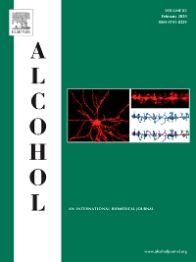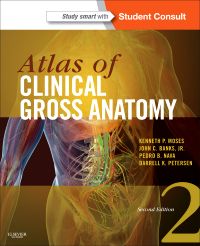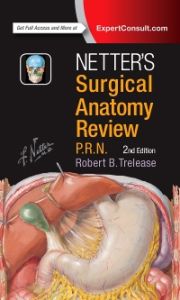Alcohol
Alcohol is an international, peer-reviewed journal that is devoted to publishing multi-disciplinary biomedical research on all aspects of the actions or effects of alcohol on the nervous system or on other organ systems. Emphasis is given to studies into the causes and consequences of alcohol abuse and alcoholism, and biomedical aspects of diagnosis, etiology, treatment or prevention of alcohol-related health effects.
Intended for both research scientists and practicing clinicians, the journal publishes original research on the neurobiological, neurobehavioral, and pathophysiological processes associated with alcohol drinking, alcohol abuse, alcohol-seeking behavior, tolerance, dependence, withdrawal, protracted abstinence, and relapse. In addition, the journal reports studies on the effects alcohol on brain mechanisms of neuroplasticity over the life span, biological factors associated with adolescent alcohol abuse, pharmacotherapeutic strategies in the treatment of alcoholism, biological and biochemical markers of alcohol abuse and alcoholism, pathological effects of uncontrolled drinking, biomedical and molecular factors in the effects on liver, immune system, and other organ systems, and biomedical aspects of fetal alcohol spectrum disorder including mechanisms of damage, diagnosis and early detection, treatment, and prevention. Articles are published from all levels of biomedical inquiry, including the following: molecular and cellular studies of alcohol's actions in vitro and in vivo; animal model studies of genetic, pharmacological, behavioral, developmental or pathophysiological aspects of alcohol; human studies of genetic, behavioral, cognitive, neuroimaging, or pathological aspects of alcohol drinking; clinical studies of diagnosis (including dual diagnosis), treatment, prevention, and epidemiology. The journal will publish 9 issues per year; the accepted abbreviation for Alcohol for bibliographic citation is Alcohol.
Alcohol subscribes to the tenets of The Farmington Consensus. Submission of a paper to the journal will be taken as evidence that the authors have complied with the tenets set forth in the Consensus. All submitted material will be subject to peer review. Alcohol considers three types of manuscripts for publication:
- Original research articles are full-length reports of the authors' original research addressing topics consistent with the Aims and Scope of the journal. Submissions outside the scope of the journal, or incomplete or fragmentary submissions, will not be considered.
- Rapid communications are original, high-quality manuscripts that describe new data of high impact and major importance to the field. These contributions are typically short (e.g., 4 journal pages), and will be peer-reviewed by at least one expert in the field of the research and an Editor, and will be either accepted with minimal or no revisions or rejected. Publication of accepted rapid communications will be expedited.
- Invited review articles will be considered for publication, upon invitation from the Editor-in-Chief, as full-length papers or mini-reviews. These contributions will be peer-reviewed. Contact the Editor-in-Chief concerning the suitability of a topic for an invited review.
Intended for both research scientists and practicing clinicians, the journal publishes original research on the neurobiological, neurobehavioral, and pathophysiological processes associated with alcohol drinking, alcohol abuse, alcohol-seeking behavior, tolerance, dependence, withdrawal, protracted abstinence, and relapse. In addition, the journal reports studies on the effects alcohol on brain mechanisms of neuroplasticity over the life span, biological factors associated with adolescent alcohol abuse, pharmacotherapeutic strategies in the treatment of alcoholism, biological and biochemical markers of alcohol abuse and alcoholism, pathological effects of uncontrolled drinking, biomedical and molecular factors in the effects on liver, immune system, and other organ systems, and biomedical aspects of fetal alcohol spectrum disorder including mechanisms of damage, diagnosis and early detection, treatment, and prevention. Articles are published from all levels of biomedical inquiry, including the following: molecular and cellular studies of alcohol's actions
- Original research articles are full-length reports of the authors' original research addressing topics consistent with the Aims and Scope of the journal. Submissions outside the scope of the journal, or incomplete or fragmentary submissions, will not be considered.
- Rapid communications are original, high-quality manuscripts that describe new data of high impact and major importance to the field. These contributions are typically short (e.g., 4 journal pages), and will be peer-reviewed by at least one expert in the field of the research and an Editor, and will be either accepted with minimal or no revisions or rejected. Publication of accepted rapid communications will be expedited.
- Invited review articles will be considered for publication, upon invitation from the Editor-in-Chief, as full-length papers or mini-reviews. These contributions will be peer-reviewed. Contact the Editor-in-Chief concerning the suitability of a topic for an invited review.












